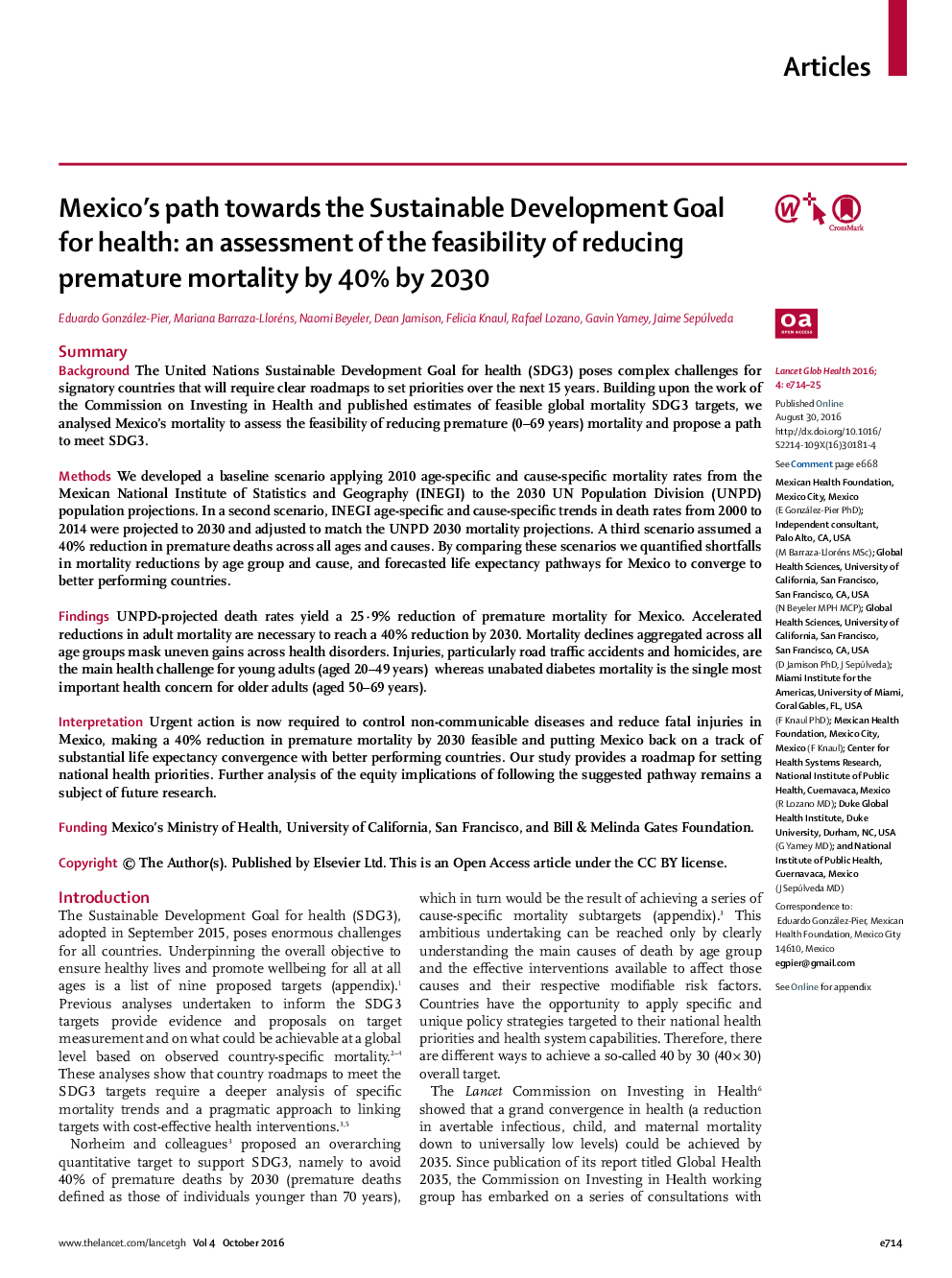| کد مقاله | کد نشریه | سال انتشار | مقاله انگلیسی | نسخه تمام متن |
|---|---|---|---|---|
| 3408691 | 1408151 | 2016 | 12 صفحه PDF | دانلود رایگان |
SummaryBackgroundThe United Nations Sustainable Development Goal for health (SDG3) poses complex challenges for signatory countries that will require clear roadmaps to set priorities over the next 15 years. Building upon the work of the Commission on Investing in Health and published estimates of feasible global mortality SDG3 targets, we analysed Mexico's mortality to assess the feasibility of reducing premature (0–69 years) mortality and propose a path to meet SDG3.MethodsWe developed a baseline scenario applying 2010 age-specific and cause-specific mortality rates from the Mexican National Institute of Statistics and Geography (INEGI) to the 2030 UN Population Division (UNPD) population projections. In a second scenario, INEGI age-specific and cause-specific trends in death rates from 2000 to 2014 were projected to 2030 and adjusted to match the UNPD 2030 mortality projections. A third scenario assumed a 40% reduction in premature deaths across all ages and causes. By comparing these scenarios we quantified shortfalls in mortality reductions by age group and cause, and forecasted life expectancy pathways for Mexico to converge to better performing countries.FindingsUNPD-projected death rates yield a 25·9% reduction of premature mortality for Mexico. Accelerated reductions in adult mortality are necessary to reach a 40% reduction by 2030. Mortality declines aggregated across all age groups mask uneven gains across health disorders. Injuries, particularly road traffic accidents and homicides, are the main health challenge for young adults (aged 20–49 years) whereas unabated diabetes mortality is the single most important health concern for older adults (aged 50–69 years).InterpretationUrgent action is now required to control non-communicable diseases and reduce fatal injuries in Mexico, making a 40% reduction in premature mortality by 2030 feasible and putting Mexico back on a track of substantial life expectancy convergence with better performing countries. Our study provides a roadmap for setting national health priorities. Further analysis of the equity implications of following the suggested pathway remains a subject of future research.FundingMexico's Ministry of Health, University of California, San Francisco, and Bill & Melinda Gates Foundation.
Journal: The Lancet Global Health - Volume 4, Issue 10, October 2016, Pages e714–e725
